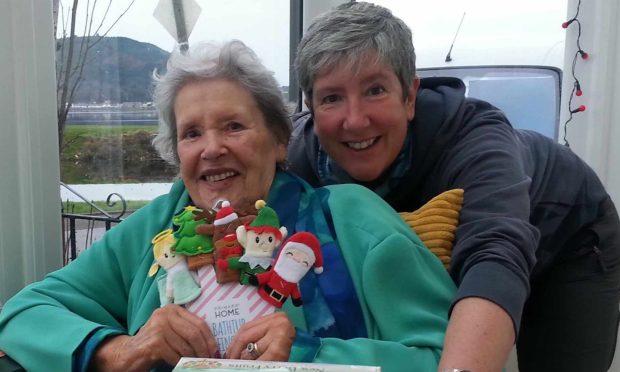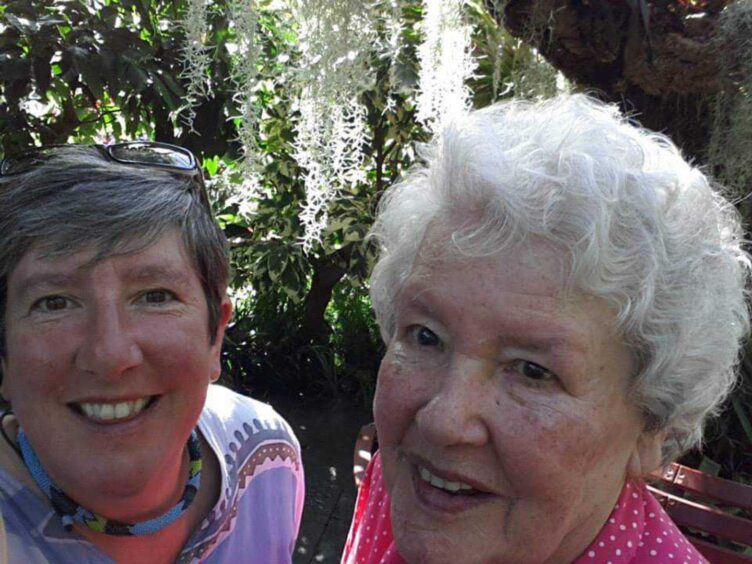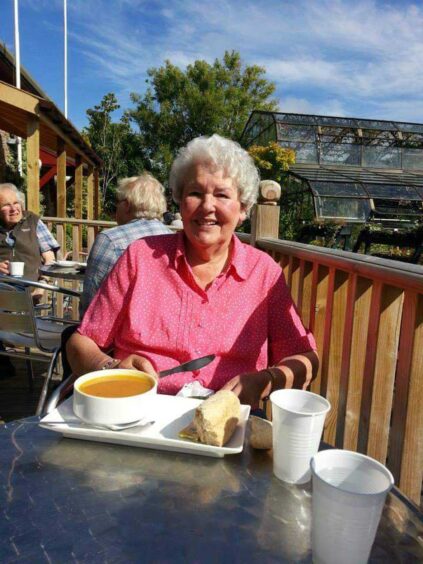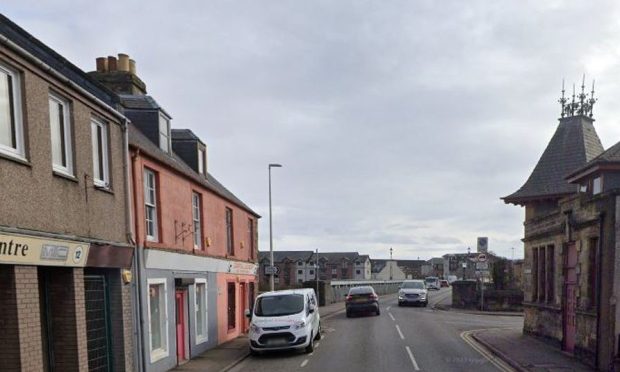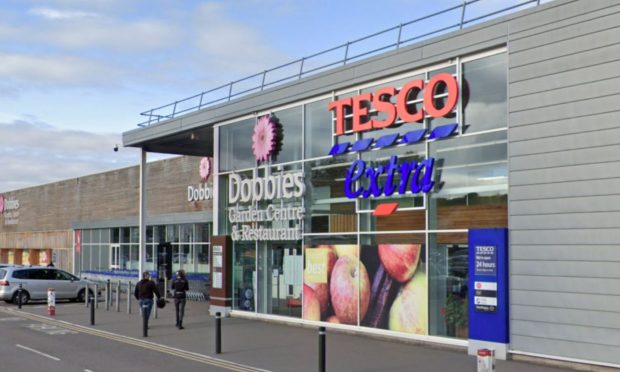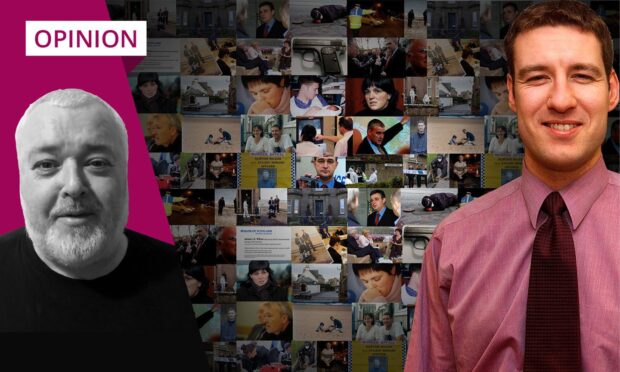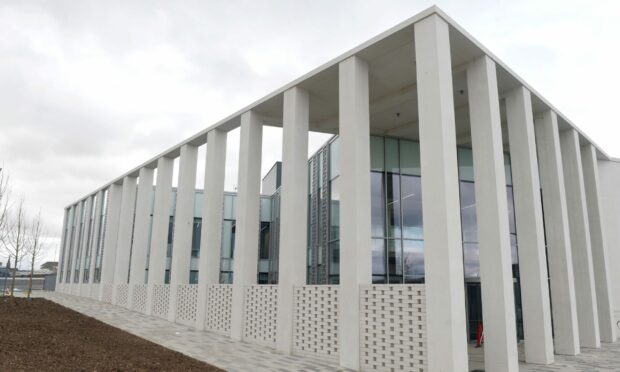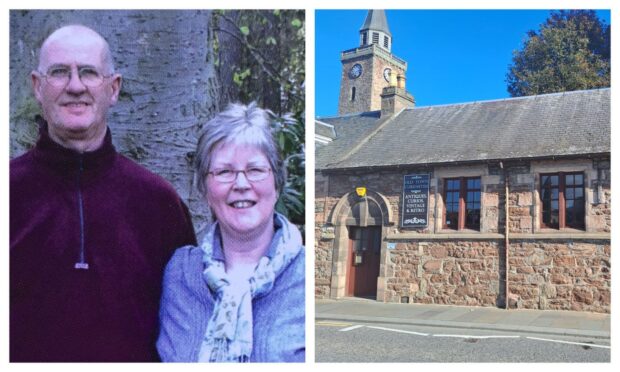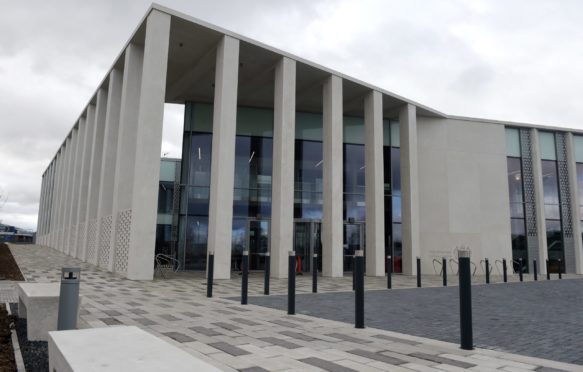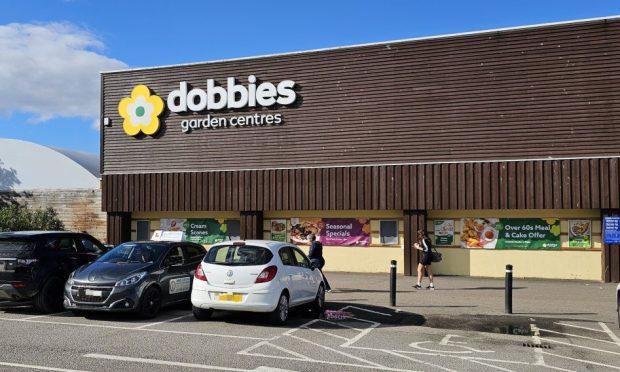Juliet and Sarah always imagined that when their elderly mother passed away, both daughters would be at her side.
However their mum’s death during the Covid-19 pandemic remains one of the most “unbearable” moments of their lives – with one daughter at her bedside, and the other sitting in a car park outside.
The sisters were denied access together to see their 88-year-old mum as she lay dying from sepsis in Highview House Care Home in July 2020 because of alleged “self-imposed” lockdown rules.
Juliet’s mum, artist Pamela Robinson, moved into the care home in 2011 and was still living there when Covid struck the nation in March 2020.
By July 2020, Pamela – who suffered from MS and had a terminal diagnosis of flesh-eating disease necrosis – contracted sepsis, and her family were called by the GP to be with her as she died.
But a day later she rallied, buoyed up by her daughters who she had not seen in person since Easter.
Inverness care home ‘did not allow’ sisters to sit with dying mum during Covid
Before long, the sisters were called to her bedside again but the care home refused to allow the pair to sit with their mum together, saying that only one daughter could be in the home at any one time.
As Pamela died, Sarah was outside in the car park while Juliet was inside. Juliet’s partner Therese and their families were also not allowed to visit.
Sarah was told she could not come in until the following day but as soon as Pamela died, both sisters were allowed into the home.
Juliet said: “By July 2020, the Scottish Government said people should be allowed to visit family with a terminal diagnosis in care homes, and that when someone was dying we should be allowed to be with them.
“But Highview followed its own rules, and they did not follow Scottish Government guidelines. English providers should have been following the rules of Scotland if they have business here.”
Aside from the unbearable loss of their “darling” mum, Juliet was devastated to be described as a “bully” by homeowners Barchester.
In July 2020 a Barchester spokesman said: “The individual involved here has not only tried to go against our protocols but has been bullying towards our staff.”
Three years on, Juliet has not backed down on her ask for an apology from the home for its “self-imposed rules” and for calling her a bully.
And today Barchester said it was sorry for any “undue upset” caused and stressed they were were working with the best intentions.
A spokesperson said: “We continue to extend our deepest condolences to everyone who lost a loved one in the pandemic.
“Pamela was a much loved member of the community who treated everyone with kindness and respect and is dearly missed. We apologise if our response to the family caused any undue upset, however we hope that Pamela’s daughters and the wider community understood our commitment to the needs and safety of all of our residents and staff in those difficult times.”
Still picking up the pieces
Three years on, Juliet and her family are still picking up the pieces following their mums’ death.
She said: “This is a very personal story, like many being told at the Covid Inquiry, and I hope it will help others.
“It took me two years to cry after my dear ma died. Being alone and having to fight to see my mum at all as she was dying was quite unbearable.
“Adding to that the statement from Barchester calling me a bully, it took me a long time to grieve. Anyone who googled me would see I was called a bully when all I was doing was asking for my right to see my mum.”
‘Covid kept us apart’
Juliet said her mum was well cared for in the home, and spent a lot of time “out on adventures” with her daughters, Therese and their families.
However, one call between Juliet and her mum while she was very ill painted a different picture.
She said: “Mum was with me on Skype and she said ‘I feel like a prisoner’.
“If Highview had followed the rules my mum could have had a different outcome for her life.
“It took me two years to cry over her death. I was at an Abba tribute night at Eden Court. They sang Dancing Queen, which was played at my mum’s funeral.
“I found myself crying and it was a relief.
“It has affected me, and my sister and family. Covid kept us apart in those last months of my mum’s life.”
‘Lessons should be learned’
Juliet said she had hoped to raise the matter with the Covid Inquiry in Scotland, but so far has not been selected to give evidence.
A spokesman for the Scottish Covid-19 enquiry said: “We cannot comment on the selection of individual witnesses. The decision as to who gives oral evidence is decided by Counsel to the Inquiry, who use their best endeavours to ensure that a broad range of impacts arising from the pandemic are presented in oral evidence.
“The Inquiry intends to report as soon as possible, while conducting a robust investigation into a pandemic which affected everyone in Scotland. This means that to report in a timely manner we must limit the number of witnesses giving evidence at oral hearings.
He added: “We are inviting everyone in Scotland to share their experiences of the pandemic, and the lessons they believe should be learned, through Let’s Be Heard, our listening project. Everyone’s experience is valuable, whether shared at hearings or through Let’s Be Heard, and all information we receive through Let’s Be Heard will help inform our reports and recommendations.”
